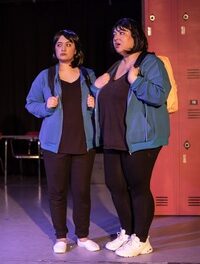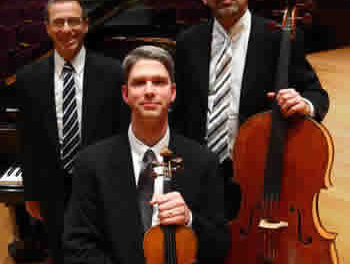Like the town in which it is based, Orange County’s community orchestra has come a long way since it was known as the Village Orchestra. Now it’s the Chapel Hill Philharmonia, and it’s a stage-filling group, diverse in all respects. The ensemble presents free concerts of great classics, evenings (or afternoons) often capped with receptions. The latest offering took place on a cold and wet Sunday evening in Hill Hall, on the campus of UNC Chapel Hill. This, the orchestra’s customary venue, is a lively but decent-sounding room in which the echo factor has been abated considerably by canvas panels, burgundy in color, mounted on the walls, and in which the sonic focus has been enhanced by the use of a shell placed along the back wall of the stage.
There was some competition elsewhere in the Triangle as Yo-Yo Ma performed in Raleigh with the NC Symphony. In Chapel Hill, the crowd was small but enthusiastic, giving the last work on the program – Brahms’ Symphony No. 2 – extended applause. In many respects, it merited this warm acclaim, for this was a performance distinguished by two key factors: 1) this orchestra plays for the sheer love of it, and 2) its guest conductor, Evan Feldman, did a super job, encouraging the musicians to play at high levels and with great unanimity a program that would have challenged even fully-professional bands. There were no concessions in terms of tempi: the symphony moved apace, the players nimbly delivering the music with few apparent problems. Yes, there were some issues in the winds, and a few of the solo moments were not as secure in terms of intonation as they ought to have been.
The guest conductor, filling in for Music Director Donald L. Oehler (who returns next semester), is best known hereabouts for his work with bands and wind ensembles; Feldman directs UNC’s Wind Ensemble and Symphony Band, the Triangle Wind Ensemble (of which CVNCer Andrea M. Luke filed a glowing review just recently), the Greensboro Concert Band, and the MYCO Youth Chamber Orchestra. Feldman’s the real thing – a conductor with evident ensemble-building skills who knows his way around the podium, providing a clear beat and using the other hand to cue, shape phrases, shade dynamics, and, overall, encourage superior playing. In Chapel Hill, with the Philharmonia, he definitely got the job done, to a remarkable extent. Orchestra fans should be on the lookout for him!
The program began with the Allegretto movement of Beethoven’s “Dance” Symphony (No. 7), premiered precisely 200 years ago and encored then, so enamored of this section was the “world premiere” audience in Vienna (which also heard the “Battle Symphony” on the same occasion). This went well in Chapel Hill, too. Again, Feldman made no significant concessions, taking the piece at a rock-solid pace and eliciting fine work from the orchestra.
There followed four movements from Romeo and Juliet by Prokofiev. The orchestra played four parts drawn from the (three) suites the composer assembled. There were some ups and downs in this part of the program, but the group began (with “Scene”) and ended (with “Montagues and Capulets”) well, and there were some impressive moments in the other two numbers played, too (the Minuet and the “Balcony Scene”). The audience responded positively.
The scholarly notes were by Concertmaster Mark Furth. These printed programs are always worth the price of admission, all on their own. (The concerts are free, but you know what I mean.)
The CHP’s season continues with a matinee on February 16, when Mozart, Smetana, and Bartók’s Piano Concerto No. 3 (the “Asheville” Concerto) will be on the program with Greg McCallum as the guest artist.












